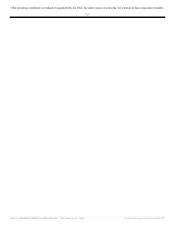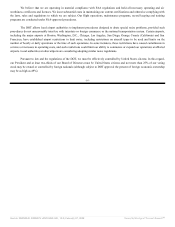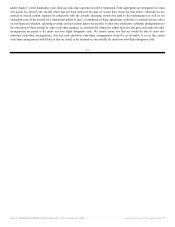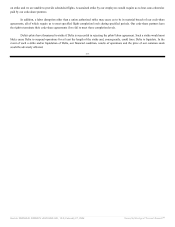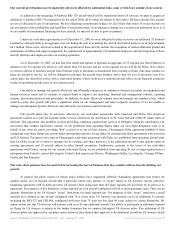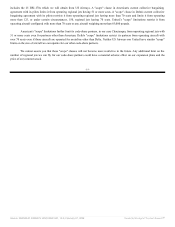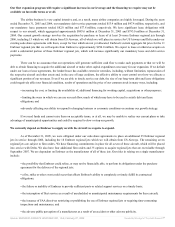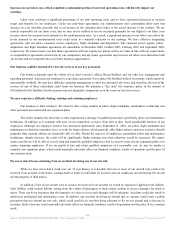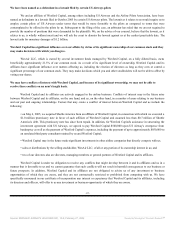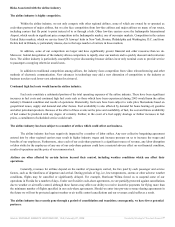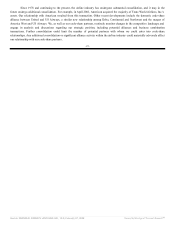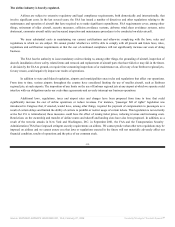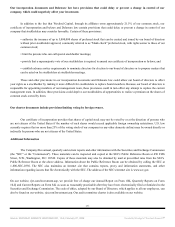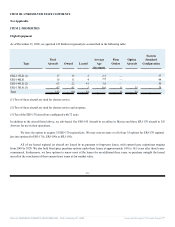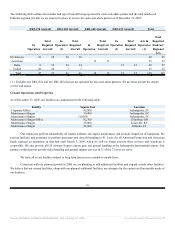Frontier Airlines 2005 Annual Report Download - page 38
Download and view the complete annual report
Please find page 38 of the 2005 Frontier Airlines annual report below. You can navigate through the pages in the report by either clicking on the pages listed below, or by using the keyword search tool below to find specific information within the annual report.
Any disruption or change in the delivery schedule of these Embraer regional jets would affect our overall operations and our
ability to fulfill our obligations under our code-share agreements.
Further, ERJ-170 aircraft began operating in the commercial airline market in February 2004. As a new product, these
aircraft have been, and may continue to be, subject to unforeseen manufacturing and/or reliability issues.
Our operations could be materially adversely affected by the failure or inability of Embraer or any key component
manufacturers to provide sufficient parts or related support services on a timely basis or by an interruption of fleet service as a result
of unscheduled or unanticipated maintenance requirements for our aircraft.
Reduced utilization levels of our aircraft under the fixed-fee agreements would adversely impact our revenues and earnings.
Our agreements with US Airways, American, Delta and United require each of them to schedule our aircraft to a minimum
level of utilization. However, the aircraft have historically been utilized more than the minimum requirement. Even though the
fixed-fee rates adjust, either up or down, based on scheduled utilization levels or require a fixed amount per day to compensate us for
our fixed costs, if our aircraft are at or below the minimum requirement (including taking into account the stage length and frequency
of our scheduled flights) we will likely lose both the opportunity to recover a margin on the variable costs of flights that would have
been flown if our aircraft were more fully utilized and the opportunity to earn incentive compensation on such flights. For example, as
a result of Delta's bankruptcy, Delta has begun to utilize our smaller aircraft at less than historical levels.
-20-
Source: REPUBLIC AIRWAYS HOLDINGS INC, 10-K, February 27, 2006 Powered by Morningstar® Document Research℠


